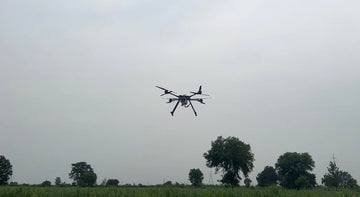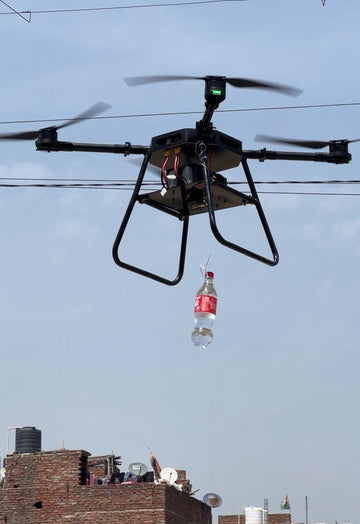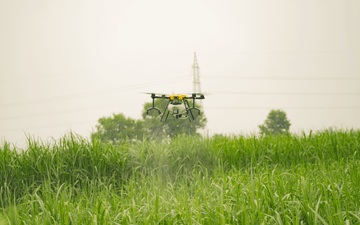Introduction
Drones have revolutionized modern warfare, providing military forces with unmanned, precision-strike capabilities that minimize human risk while maximizing efficiency. From reconnaissance missions to targeted attacks, drone warfare is reshaping the battlefield, offering new strategic advantages and ethical challenges. In this blog, we explore the evolution, applications, advantages, and concerns surrounding drone warfare.
Evolution of Drone Warfare
Drone technology has evolved significantly from its early use for surveillance and reconnaissance to playing a central role in combat operations. Early military drones, such as the RQ-1 Predator, were primarily used for intelligence gathering, but advancements led to armed drones like the MQ-9 Reaper, capable of executing precision strikes.
Today, military forces worldwide are integrating autonomous and AI-driven drones, enabling real-time decision-making and enhanced combat effectiveness. Swarm drone technology, where multiple drones coordinate in attack formations, represents the next phase of military UAV operations.
Key Applications of Drones in Warfare
1. Surveillance and Reconnaissance
Drones provide real-time intelligence gathering with high-resolution cameras, thermal imaging, and radar sensors, helping military commanders make informed tactical decisions.
2. Precision Airstrikes
Armed drones can neutralize high-value targets with pinpoint accuracy, reducing collateral damage compared to conventional airstrikes. This makes them invaluable for counterterrorism operations.
3. Electronic Warfare
Drones equipped with jamming devices can disrupt enemy communication systems, radar networks, and GPS signals, crippling adversarial operations.
4. Supply and Logistics
Military drones can transport ammunition, medical supplies, and essential equipment to remote or high-risk areas, ensuring soldiers receive critical resources without exposing personnel to danger.
5. Swarm Warfare
Advancements in AI and autonomous flight enable drone swarms, where multiple UAVs collaborate to overwhelm enemy defenses, execute coordinated attacks, or gather intelligence over vast areas.
Advantages of Drone Warfare
-
Reduced Human Casualties: Unmanned operations keep soldiers out of direct combat zones.
-
Cost-Effective: Drones require less maintenance and operational cost compared to fighter jets.
-
Rapid Deployment: Drones can be launched quickly and operate in hostile environments with minimal setup.
-
Stealth and Precision: UAVs are harder to detect, making them ideal for covert missions and surgical strikes.
Ethical and Strategic Concerns
1. Civilian Casualties and Collateral Damage
Despite their precision, drone strikes can still result in unintended civilian casualties, raising ethical and humanitarian concerns.
2. Autonomous Lethal Weapons
The integration of AI and autonomous targeting systems sparks debates over robotic warfare and the potential for uncontrolled escalations in conflict.
3. Cybersecurity Threats
Drones are susceptible to hacking and cyber-attacks, which could lead to enemy forces hijacking UAVs or disrupting military operations.
4. Legal and Political Challenges
International laws regarding drone strikes in sovereign territories remain complex, with concerns over sovereignty, accountability, and the justification of targeted killings.
The Future of Drone Warfare
Drone warfare is rapidly advancing, with hypersonic drones, AI-driven decision-making, and autonomous combat units on the horizon. Nations are investing heavily in UAV technology, leading to an unmanned arms race that could redefine global military strategy.
As technology evolves, the need for regulations, ethical frameworks, and cybersecurity measures becomes increasingly critical to ensure responsible drone use in warfare.
Conclusion
Drones have become an indispensable tool in modern military operations, offering strategic advantages while posing significant ethical and legal challenges. As autonomous warfare continues to develop, the global community must navigate the fine line between technological advancement and responsible warfare. The future of drone warfare lies in balancing innovation with ethical considerations, ensuring these powerful tools are used with precision, accountability, and strategic foresight.






